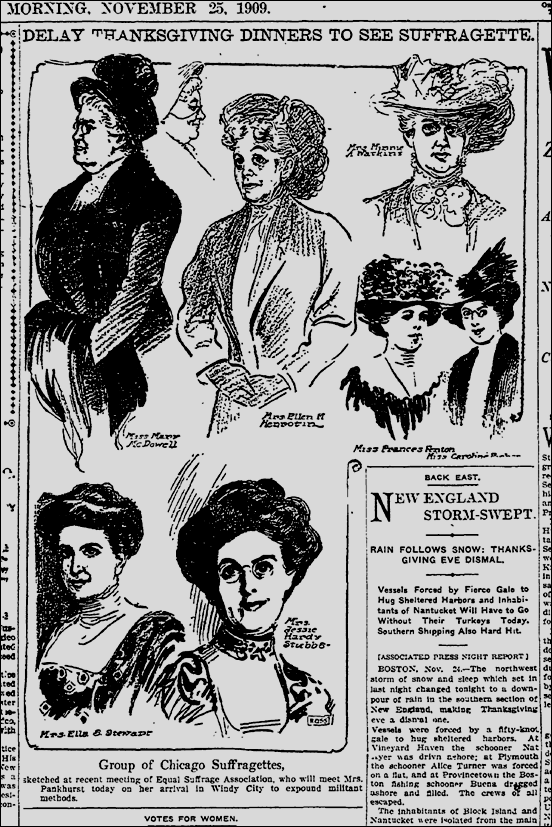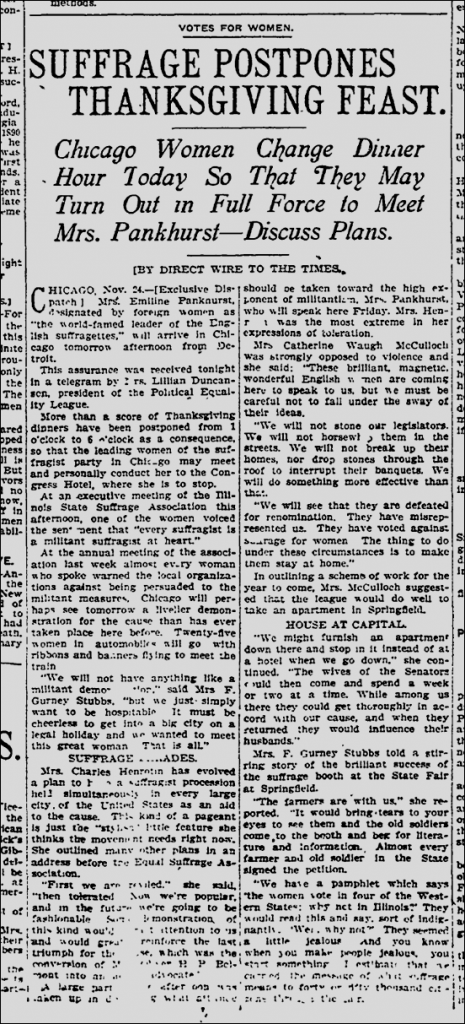Larry Harnisch at the Daily Mirror dug up this gem, a 1909 story from the Los Angeles Times about prominent Chicago-area women’s rights advocates pushing back the time they served Thanksgiving dinner in order to go see the British suffragist Emiline Pankhurst:


“…one of the women voiced the sentiment that ‘every suffragist is a militant suffragist at heart’.” Well, obviously, if you’re willing to postpone Thanksgiving dinner, no matter what this woman says:

Those British suffragists must have been something if stoning legislators was part of the discussion.






